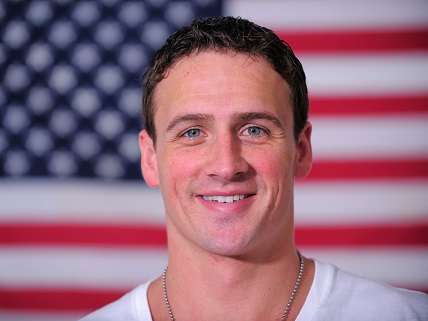The Ryan Lochte Mess and Criminal Justice Reform Advocates Who Support Harsher Treatment
Getting to a color-blind criminal justice system by making it harsher on whites


So it turns out the Ryan Lochte mess in Rio is more complicated than those who wanted to use it to score political points made it out to be.
Lochte and two other Olympic swimmers reported they had been robbed at gunpoint by men masquerading as police officers during the Rio 2016 Olympics, and eventually police accused them of filing a false police report. A story came out that Lochte and the others had vandalized a door at a gas station and the "armed robbers" were armed private security guards who were demanding payment for the door.
Self-proclaimed police reform activists like the New York Daily News' Shawn King were quick to jump on Lochte and question his story of potential police abuse. Comparisons were made to Michael Brown, whose alleged strong-arm robbery of a convenience store was initially used by police apologists to defend his killing at the hands of a police officer unaware Brown was a potential robbery suspect.
Now, an investigation conducted by USA Today Sports reveals that while Lochte embellished his story, as he admitted, Rio authorities are not being honest about what happened. USA Today reports:
But a narrative of the night's events—constructed by USA TODAY Sports from witness statements, official investigations, surveillance videos and media reports—supports Lochte's later account in which he said he thought the swimmers were being robbed when they were approached at a gas station by armed men who flashed badges, pointed guns at them and demanded money.
A Brazilian judge says police might have been hasty in determining the security guards, by how they dealt with the swimmers, did not commit a robbery. A lawyer who has practiced in Brazil for 25 years says she does not think the actions of Lochte and teammate Jimmy Feigen constitute the filing of a false police report as defined under Brazilian law.
The demand for tougher treatment of Lochte and a total refusal to "believe the victim" in large part because of their race is nothing new. The same cast of characters critical of Lochte were demanding back in January that the federal government come down hard on armed protesters in Oregon who occupied an unmanned government wildlife station. They even deployed the frenetic hashtag #OregonUnderAttack to describe the event, a hashtag that wouldn't be used to describe something like, say, last weekend's riots in Milwaukee.
A similar reaction was seen after the shootout at a bikers gathering in Waco last year. The Daily News' King complained police were treating the bikers too kindly even as the possibility that a number of the victims in the shooting had been killed, or at least shot at, by police officers, and that cops may have needlessly escalated the situation, existed. Police malfeasance has only become clearer since then. The incident also included mass arrests and a dysfunctional legal process in its aftermath. Despite the schaudenfreude from the likes of King, not all the Waco victims were even white.
Such attitudes by some of the most prominent mainstream voices for criminal justice reform provide the political cover to ramp up police and criminal justice abuses, so long as they are meted out without racial disparity, not a desirable goal for anyone interested in reducing government violence instead of increasing it. It's not speculation. One New York City councilman who glommed onto the police shooting of Ramarley Graham admitted that accusations of racial profiling could be fixed if police were to target more white males, rather than ramping down the deadly and costly war on drugs, which he and many of the politicians now claiming to be supporters of criminal justice reform have long backed enthusiastically.


Show Comments (64)